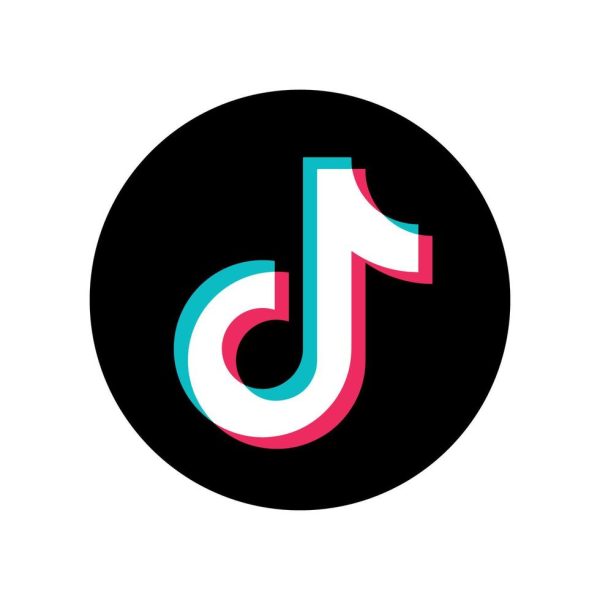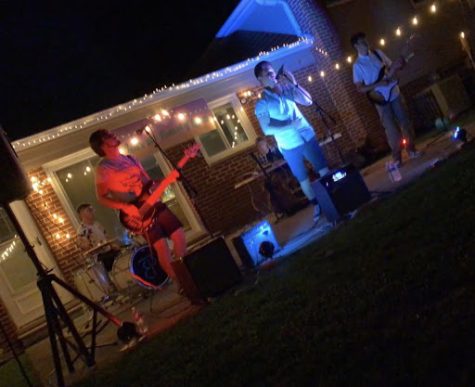Impacts of Covid-19 still being felt
Not totally back to normal: a few sophomores pose for a picture in the hallway wearing masks per state mandate.
Covid has taken a toll on students in all areas of the health triangle. It has put a strain on mental, physical, emotion, and social health. Isolation, ultimately, took a toll on many.
“Their mental health got worse because they were so isolated from their friends due to COVID-19,” school psychologist Jennifer Zacharski said
As a result of the pandemic many challenges were presented. Several people lost jobs and struggled to find ways to feed their families. Luckily, schools like BG were given grants and waivers to be able to provide food to those in the community.
“Many students couldn’t get food, so they had to come to BG to get the school’s free meals,” Zacharski said.
Not only were many sports and clubs put on hold, but gyms and workout facilities were also closed for a time. This meant that staying at your best physically became even more difficult.
“Students suffered from isolation and did not receive exercise benefits,” Zacharski said.
As numbers continue to go down and the vaccine is available, we are able to more fully process and reflect on what we can take away and implement in the future from this experience. Students are now more aware of their mental health and are taking better care of themselves.
“I didn’t know who I was as a person and I still don’t know who I am now,” freshman Sammie Higgins said. “I am trying to take the space to figure out what I care most about.”
According to an article from CBS News on Aug 26 entitled “Pandemic intensifies growing mental health crisis among teens”, for those who are struggling, ‘mental health isn’t always about seeing a therapist or a psychiatrist,’ Friedman-Lombardo said. ‘Sometimes it’s about becoming involved in your community. It’s about making those connections, feeling that you belong.’”
Having the opportunity to be back in school has allowed students to do just that. They can now join clubs, sports, and activities and become invested in the school community.
“Friends being the main source of contact and not being able to see them was the hardest thing for students during the pandemic,” Zacharski said.
According to the National Alliance of Mental Illness (NAMI)”we may be able to support teens’ mental health by helping them minimize factors that make them vulnerable to depression and by increasing their resilience”.
According to Zacharski, virtual school and the Pandemic in general made it more difficult at times for students to get support with mental health. However, some students say that the virtual options for therapy actually allowed for more convenient and consistent help.
Students are still at times feeling the impacts of missing some of the quintessential experiences from going to school such as dances, field trips, etc. As seen in our large participation in homecoming week festivities and clubs and sports, it is clear students are ready to be fully immersed in all aspects of school once again.
“People thought that because of Covid there would be no more fun,” Higgins said. “We missed our end of the year dances and other events, but we are ready to experience these things again.”
Although the transition academically has been difficult for some, most students seem to be motivated to excel in their classes.
“ [During remote] Some students were using notes and a calculator on tests at home because the teachers gave them that luxury, but when they came back to school they didn’t have the luxury anymore which was hard for many students, ”counselor Gia Georgiades said.
Some might say this difficult transition was seen and felt in the behavior incidents sparked by Tik Tok and the initial feeling of students not used to the routine of school.
“Going back to school was the hardest thing that students had to do,” Georgiades said. “But it’s better to be in person.”
Now, as we are one quarter through the school year, students and staff alike seem to be feeling motivated and encouraged to grow academically and socially.
What is clear about the results of the pandemic is that connection and relationships are so important. Students need support to help them process feelings and maintain a healthy mental state, they need to feel connected and part of a community, and they need routines to help them focus on resilience.
“Since friends were the main source of contact many people were feeling lonely and isolated, but since we are back in person people are being less lonely now that they can see their friends,” Zacharski said.






